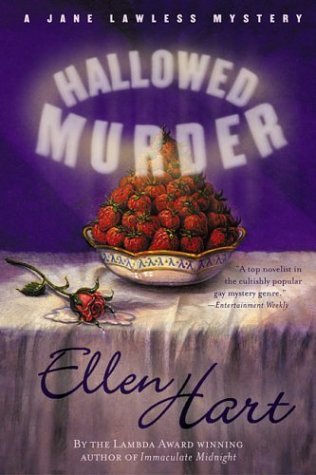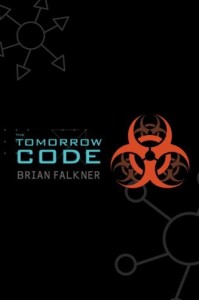
I’m going to venture into spoilers for The Tomorrow Code, but I’ll try to do this chronologically, so the big spoilers won’t come until near the middle or end of this review. I’ll warn you when we get there.
The story is essentially about three kids in New Zealand. Tane, his best friend since forever, Rebecca, and his older brother, called Fatboy. Tane and Rebecca are chatting about time travel and hit on the idea that all you really need is a receiver and you could get any messages that people from the future were sending back. So as you may guess, it doesn’t take them long to find these messages. Takes them a little longer to decode them.
At this point in the story, it’s okay. I like time travel stories and who doesn’t like a book with some good codes and cryptic messages in them? The style of the writing was what I’d characterize as very YA-y. By that I mean it tries to be a little clever, while treating the reader as a bit of an idiot. It’s hard to pick out a specific example, but this sort of captures it:
That may not have sounded like much, but it wasn’t very often that Rebecca thought that Tane had an interesting idea, so it was kind of an important day, if only for that reason.
Although, in hindsight, it was actually an important day for much bigger reasons than that.
I like my foreshadowing to be more subtle than that, but actually this quote illustrates another thing that started to bug me pretty quickly. Tane is a spineless, weak-willed jellyfish. (Which is ironic, considering what they end up fighting later.) ((See what I did there?)) Rebecca is super-smart when it comes to science and technical things. Supposedly. So when they start talking about time travel, she says things he doesn’t understand. He pretends he does. Not to boost his own ego or save face, but just so he doesn’t disrupt her flow of conversation and thought processes.
Apparently Rebecca is also a bit of an activist and goes on protest marches a lot. Tane goes with her. Not because he cares two whits about the protest. He doesn’t even take the time to learn what they’re protesting about. Just because she wants him to go. Look, there’s being supportive of a friend and doing things because they like to do them, and then there’s… being a spineless jellyfish. It’s not that he’s a martyr, because he doesn’t mope about saying how he doesn’t want to be there. He pretends he does. So that’s two cases of him lying to her and deceiving her just to… be friends with her? How has this friendship lasted since birth?
When his older brother asks her out and the two start dating, you can only cheer for them. It’s not like she should be going out with Tane! How much worse would he get about this all if he were actually her boyfriend? Ugh.
I thought, maybe, maybe, the author is just being a bit heavyhanded and this is a lesson Tane is supposed to learn by the end of the book. He’s supposed to grow and change and turn into his own person and not be pushed around by Rebecca (who doesn’t even realize she’s pushing him around, since he goes along with it so easily). This does not happen. Tane does get less annoying, but mostly because the story stops focusing so much on their relationship, not because he’s actually grown into a less annoying person.
So I’m digging on the codes for a little while. Rebecca whips up this program to analyze signals and whatnot. It’s reminding me a bit of that series of choose your own adventure type books that were all about programming in BASIC. It had the programs and you had to put them into your computer, and usually debug them or alter them in some way to fit the story. You were a secret agent who was also a kid and a computer whiz. Anyway, they were awesome. So a book that reminds me of those in some small way gets a little boost to my opinion of it.
That didn’t last long. Most of the codes are cryptic in a way the reader couldn’t ever figure out. Heck, most of them are cryptic in a way the characters couldn’t figure out. Which is just bad cryptozizing skills! These messages are meant for Tane and Rebecca, so they ought to be written so they can figure them out. Of course it doesn’t help that they are idiots.
What do you think this means?
202.27.216.195,GUEST,COMPTON1.
Yea, she’s writing a program in one chapter and completely stumped by this a little later. It’s Tane who eventually (eventually) figures it out, by harkening back to something they learned in school. LEARNED IN SCHOOL!!
This book was written in 2008, btw.
And that’s the most legible of messages, to the reader. The rest you can only figure out as the story progresses. Because they’re crap. If you’re going to shorten the word ‘bitmap’, why would you not use BMP? Why would you use BTMP? The theory in this book is that the messages have to be written to save as much bandwidth as possible. (They don’t call it bandwidth, but yea, essentially.) Why add a letter there? And not add a letter where it would make more sense to? On top of that, yea, there’s an actual bitmap sent through. If you’ve got the space to be sending an image, you’ve got the space to write a few complete words. Kthnx.
So now that the book has annoyed me on several fronts, and I was seriously thinking Forever War a more interesting read (until that ticked me off so so hard, but more on that in a later Nebula Project discussion), the book takes a 90-degree turn.
‘Book 2’ of the book, which is to say the next section of the book, shifted in tone. Suddenly things weren’t about time travel and codes and Tane being jealous of Fatboy without ever telling anyone, but about this bioterror threat and almost-dead 4-year olds. It got pretty serious and rather dark awfully fast.
There’s more action in the back half of the book. Boring action. I was skimming it, because I hate action scenes without any character or emotion really pushing it and backing it. It also wasn’t written very well, but that was par for the book. Not that it was bad writing. It was competent writing. It just didn’t read easily to me. It didn’t flow.
The action also stops centering around the three kids. There are suddenly a lot of scenes with adults as POV characters. Adults who weren’t even in the first part. Until the end we’re jumping between all sorts of different people, fighting battles, and just.. blah. I was glad when I finally finished it.
Not that the end didn’t suck.
Okay, now I need to talk about the spoilery bit. It’s two paragraphs in white font below. Highlight it to read it, if you don’t mind me ruining the Big Surprise. Otherwise skip down to the second set of –‘s.
—
So there’s this Chimaera Project, which is playing with viruses and trying to cure the common cold, essentially. But things go wrong. Very very wrong. It’s not a mutant virus getting out and killing everyone though, oh no. It’s the planet taking the opportunity to create ginormous antibodies and macrophages to seek out humans and destroy them. Oh, and they look like jellyfish and snowman. Because, of course they would. This is the perfect opportunity for a Maori lesson on treating the Earth respectfully and whatnot. And the soldiers get all upset at being told this, because they’re offended at being considered germs. Oookay.
Yea, no. Been there, read that. It wasn’t very well-executed in the book I read it in either. (I resist naming names, because it might be a spoiler for that book.) Plus however many movies and TV episodes involve being shrunk and injected into somebody’s body.
—
Now for some final, non-spoilery thoughts.
Tane was remarkably self-aware and sensitive to other people’s thoughts and emotions. Granted, mostly Rebecca’s. It struck me as ungenuine for a 14-year old boy. However, the author is male, so I’m not sure if I have a better grasp on what teen boys are capable of than he does. It’s like.. he knows he’s jealous and why. And even he even knows that his brother knows that he’s jealous. He knows all these things, he’s aware of all these things, and he still doesn’t say anything or act on them at all!! In contrast, Rebecca must be mostly oblivious, since she doesn’t seem to know (or perhaps to care?) that he’s not into protesting or that he doesn’t like her dating his brother.
In another situation, I might like Tane for that and think the book is a breath of fresh air. But Tane was that spineless jellyfish, so his insight just made that trait all the worse.
Some of the chapters have song snippets at the head of them, and near the end, the soldiers start singing a song. I felt like all the songs were ridiculous and out of place. Yellow submarine? Really? I feel like if you’re going to use quotes like this, they should be there for a good reason. Not because the song popped into your head while you were writing that chapter.
So, yea, redeeming qualities of the book are a smart girl character, the unusual (to me) setting of New Zealand, and the glimpses of Maori culture. If that’s a combination you’re looking for, go for it.
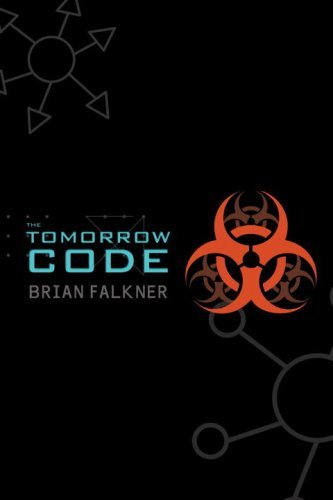


 The Plot
The Plot Finally, I would be remiss if I didn’t comment on the truly appalling cover art on the edition of the book which I read. It is hideous. If I had picked this book up off the shelf in the bookstore, intrigued by the title, I would most likely have put it right back down after seeing this bizarro picture on the front. Fortunately, more recent editions have come out with a much more modern, appealing set of covers.
Finally, I would be remiss if I didn’t comment on the truly appalling cover art on the edition of the book which I read. It is hideous. If I had picked this book up off the shelf in the bookstore, intrigued by the title, I would most likely have put it right back down after seeing this bizarro picture on the front. Fortunately, more recent editions have come out with a much more modern, appealing set of covers. 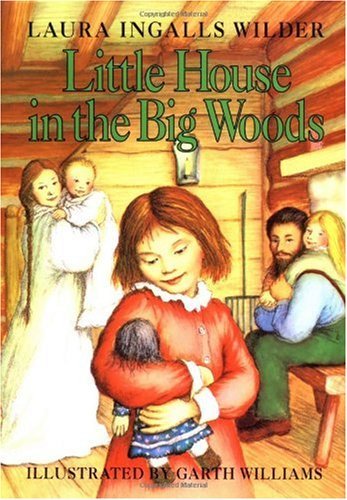
 With the exception of Farmer Boy, the original Little House books all have Laura Ingalls as the main character. Though the books themselves follow her as a child all the way to the first years of her marriage, there’s a time jump* between the third Laura book, On the Banks of Plum Creek and the fourth, By the Shores of Silver Lake. The existence of this gap means it makes sense to me to break the series there and have a look at the first three books together.
With the exception of Farmer Boy, the original Little House books all have Laura Ingalls as the main character. Though the books themselves follow her as a child all the way to the first years of her marriage, there’s a time jump* between the third Laura book, On the Banks of Plum Creek and the fourth, By the Shores of Silver Lake. The existence of this gap means it makes sense to me to break the series there and have a look at the first three books together.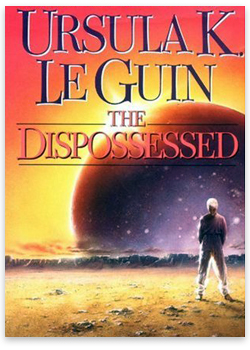
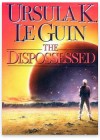 Physicist Shevek leaves his homeworld to join physicist colleagues on the planet his people abandoned generations ago. The Urrastian’s aggressively capitalistic and gender-segregated society is quite a change from the anarchism/non-authoritarian communism practiced on Annares, his home. At home, no one owns anything, people live in dorms, and share in either prosperity or lack. Though some are starting to wonder if they really are as free as they believe. Shevek is determined to share his breakthroughs with the known universe, and he’s not sure either Annares or Urras will permit him to do it.
Physicist Shevek leaves his homeworld to join physicist colleagues on the planet his people abandoned generations ago. The Urrastian’s aggressively capitalistic and gender-segregated society is quite a change from the anarchism/non-authoritarian communism practiced on Annares, his home. At home, no one owns anything, people live in dorms, and share in either prosperity or lack. Though some are starting to wonder if they really are as free as they believe. Shevek is determined to share his breakthroughs with the known universe, and he’s not sure either Annares or Urras will permit him to do it.